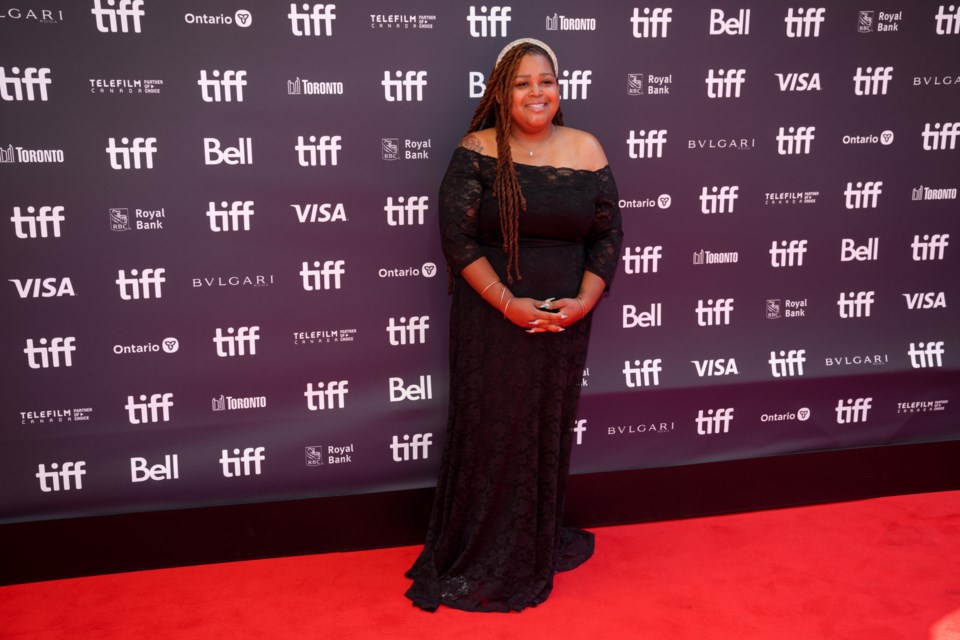TORONTO ÔÇö Ongoing strikes by Hollywood actors and writers have kept discussions about fair compensation and job protection at the forefront of this year's Toronto International Film Festival, but Canadian film industry players who are Black, Indigenous and people of colour say that still doesn't address the larger barriers they face.
Canadian BIPOC filmmakers and actors say that while they support the striking members of the Screen Actors Guild-American Federation of Television and Radio Artists and the Writers Guild of America, they're still fighting for visibility and support on this side of the border.
Kelly Fyffe-Marshall, co-founder of the Black female-led Sunflower Studios, director of the film "When Morning Comes," and co-director of the upcoming series "Bria Mack Gets A Life," says the strikes, although significant, don't tackle the issues that lead to the underrepresentation of BIPOC filmmakers in sa╣·╝╩┤½├¢.
ÔÇ£When it comes to sa╣·╝╩┤½├¢, striking doesnÔÇÖt help BIPOC filmmakers in exactly the same wayÔǪwe donÔÇÖt get to strike for something as basic as more visibility, which is a problem,ÔÇØ she said in a recent phone interview.
ÔÇ£WeÔÇÖre not at that stage yet in sa╣·╝╩┤½├¢. What it has really come down to for us is creating a community while pushing forward with new projects, praying that we can get more than one POC project covered out there at one time.ÔÇØ
In 2021, Fyffe-MarshallÔÇÖs short film "Black Bodies" was selected for the Sundance Film Festival, after winning TIFF's inaugural Changemaker Award the previous year. However, she said that no one in Canadian media seemed to care until American filmmaker Ava DuVernay praised her work in a tweet.
ÔÇ£That was the vote of confidence I needed and because of that one tweet, it gave other people the confidence to cover the film, because I had this co-sign,ÔÇØ she said.
Canadian actor and filmmaker Henri Pardo, whose French-and Creole-language feature film "Kanaval" premiered at TIFF this year, said that it has always been a challenge to gain exposure in a country like sa╣·╝╩┤½├¢ thatÔÇÖs still falling behindwhen it comes to championing diverse content.
Pardo said he supports the Hollywood strikes but the media focus on the lack of celebrities on red carpets during a festival attended by many homegrown BIPOC filmmakers raises questions about whose struggles are seen as headline-worthy.
Pardo said the voices of Black people have historically not been included in major campaigns such as the second-wave feminist movements in the 1960s and 1970s, and that is also often seen with high-profile labour movements.
We have to consider these groups when dealing with unionized striking and make sure that the issues of Black and POC voices are heard. Yes, we all want more compensation and protectionsthat should be given coverage, but Black and POC Canadians here are also operating with different circumstances and challenges, said Pardo.
Pardo pointed to the lack of diverse workforces on most Canadian film sets and the fact that the exploration of topics such as race and identity are often seen as uncomfortable subjects for general audiences.
Jamaican-Canadian musician Mark Clennon, who made his TIFF debut as the star of director M.H. Murray's indie film ÔÇ£I DonÔÇÖt Know Who You Are,ÔÇØ hopes the festival can put a spotlight on these issues.
ÔÇ£The strike is one big umbrella related to being in this industry, period. But then thereÔÇÖs the umbrella of being a Black professional in sa╣·╝╩┤½├¢ where different dynamics come into play,ÔÇØ says Clennon, whose film centres on a Black queer musician who has endured a sexual assault and requires HIV-preventive medication that he can't afford.
ÔÇ£One of the best things I've heard people say is how unique and interesting a story about a queer Black man dealing with an assault is...my hope is that the strike introduces discussions about BIPOC stories and how they deserve more attention."
This report by The Canadian Press was first published Sept. 15, 2023.
Noel Ransome, The Canadian Press



